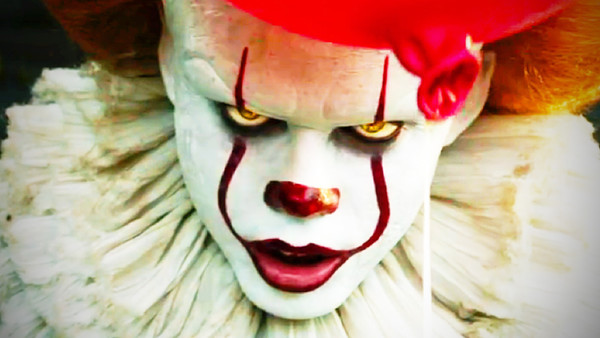The Disturbing Truth Behind Pennywise

Intriguingly, the second time the Losers' Club encounter It, he still manifests as Pennywise for the most part and you really have to question why. Surely, if King's explanation that "kids just hate clowns" was so pertinent, then the Losers' Club would have nothing to fear of Pennywise when they've grown up. It would still have power over them, because it would appear in whatever form appealed to their most inherent, ADULT fears. Pennywise would be unlikely to appear again. So why does he?
Once more, you have to return to the idea of the kids being traumatised before their encounters with It. Those psychological and emotional wounds - which were primarily the reason for the Losers leaving Derry - left a mark and guaranteed that they would later be susceptible to It and Pennywise even as adults. Their relationship with It very much mimicks adult experiences with childhood trauma. Mental health issues can manifest in adults years after the so-called trigger, pulling the foundations from under you most unexpectedly and robbing you of emotional stability and control.
For it to return in adulthood - and so unexpectedly - particularly when you may not have a fully memory of the trigger event is why it can be so traumatic. It's not something that Andy Muschietti is avoiding addressing either, as the very reason there are flashback sequences with the 1989 cast in It: Chapter 2 is because the gang's experiences as adults dredges up memories they didn't know they had. They are the unreliable narrators of the first movie because it's a story being told in hindsight: it's only when more trauma starts unlocking old doors that they remember the new details.
That too filters into the idea of unpredictability and instability as the most effective forms of fear. Pennywise is the harbinger of old fears - he takes away the safe space of adulthood from the grown-up Losers' Club and they are immediately thrust back into those vulnerable states. They become no more than children once more - albeit ones with more experience - whose supposed armour is stripped away. It doesn't matter that they beat It before. It doesn't matter that their abusers are no longer around. It doesn't matter that most of them escaped Derry and everything that defined it as a place that needed to be escaped. They're back to being the Losers' Club. Scared, vulnerable and preyed upon.
In the end, the simplest way to express that, at least in the lexacon of Stephen King's horror works, is to once more torment them with an inherently childlike fear. Because
, as the master says, clowns are just really f*cking scary.